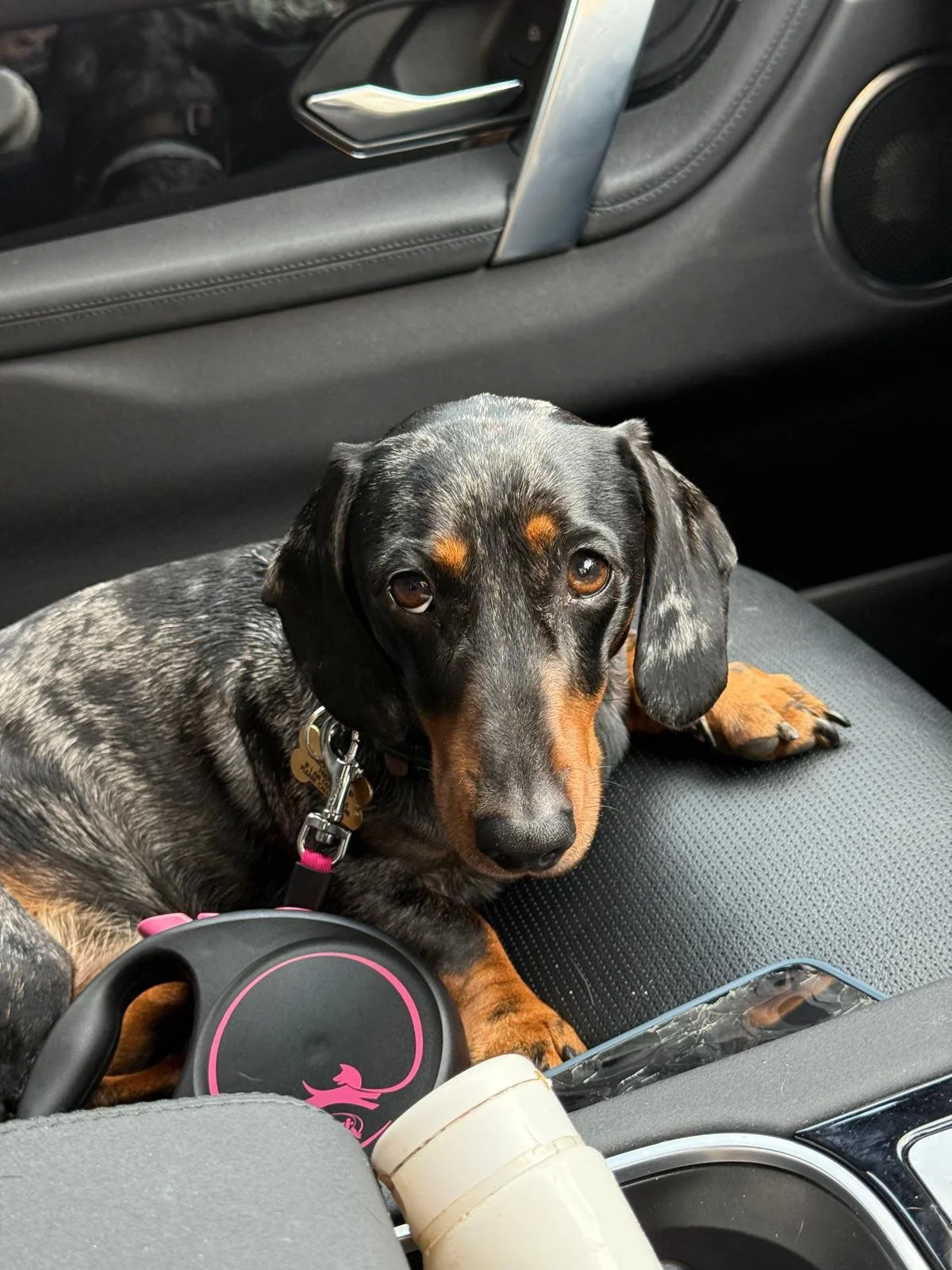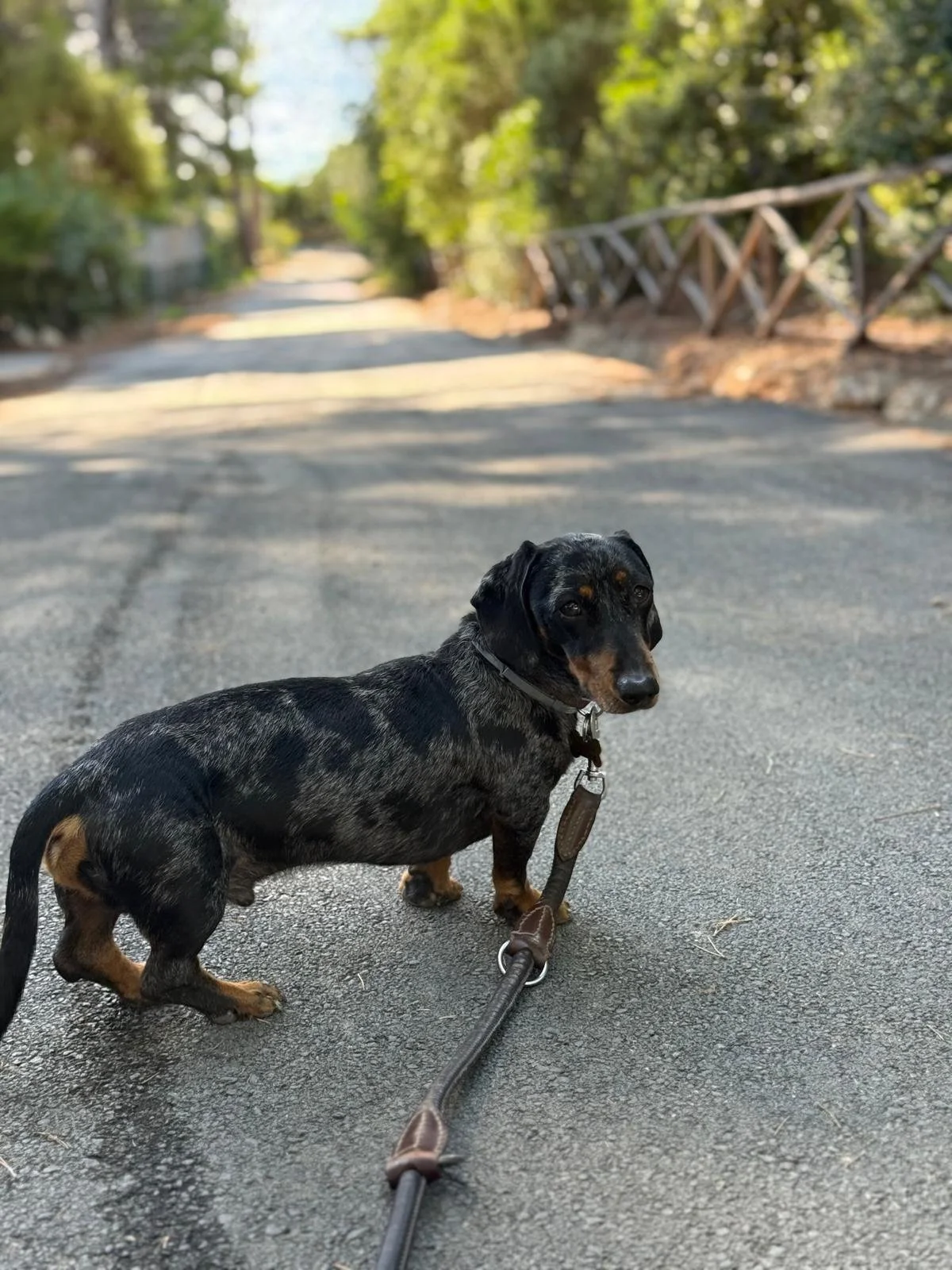The Dog Who Healed My Parents
My parents were too tender for this world — too romantic, too gentle, too trusting — like soft petals in a storm. They were dreamers, the kind of people who believed in music and candlelight, who cried at films, who loved too deeply and forgave too quickly. But this world is not built for people like that. It rewards hardness, ambition, resilience, not tenderness.
My father was sent away to boarding school when he was only seven — far too young to be left among strangers in cold dormitories with icy floors and indifferent matrons. He was the product of a broken marriage, an afterthought in the chaos of his parents’ divorce. His sisters were older, distant, and rather than protect him, they mocked his softness. He learned early that to survive, he had to perform — to make people laugh before they could hurt him.
He became the clown, the charming one, hiding the ache of abandonment behind English wit and good manners.
Then came my mother — fiery, Italian, mercurial. She, too, was the child of separation. Her father had stolen her and her siblings away from their mother and taken them to Italy. She grew up without a mother’s embrace, always missing something she could never name.
When they met, two broken hearts recognized each other immediately. They fell in love like two children who had found home at last — but their love was also their undoing. They were both needy and unhealed, clinging to each other in a co-dependent dance. Neither had been taught how to navigate the world — the discipline of work, the steadiness of routine, the dull persistence that keeps the lights on.
Their love was emotional, poetic, chaotic — and when life’s practical demands closed in, it cracked under the weight.
My sister and I grew up inside that beautiful mess.
She became the caretaker, reliable and strong, the one who held everything together.
I became the dreamer — the escapist. I floated through life, half here, half elsewhere. I was always imagining something better, somewhere far away: America, Brazil, the next adventure. I wanted to create, to feel, to be free of pain.
And then came Thiago.
A dachshund with soulful eyes and the gentlest spirit, Thiago arrived when our family needed saving.
He was small but mighty, the emotional glue that began to mend the cracks in all of us.
He didn’t care about our past or our failures. He cared only that we were together.
When friends and family had turned their backs on my parents — when they were ridiculed, dismissed, and left to flounder — Thiago stood by them. His presence softened their edges. He made them laugh again. On long walks, people would stop to admire him, and my shy parents — who never quite knew what to say to strangers — would beam with pride. Through him, they re-entered the world.
They loved him so fiercely that I sometimes thought we might smother him with affection. He became our child, our confidant, our angel. And he seemed to understand us — our moods, our silences, our unspoken fears.
As years passed, Thiago grew into himself — playful, proud, sensitive. He sat beneath the apple tree in the garden, his eyes half-closed as though he were meditating on some secret truth. I thought he was just maturing, becoming calm with age. I didn’t see what was happening beneath the surface. None of us did.
Then came the test results.
Kidney failure.
Off the charts.
A sentence that felt like betrayal — how could a body so full of life be quietly breaking down?
In Switzerland, then in England, the results were the same. And suddenly we were thrust into a nightmare of tubes, needles, and sterile hospital rooms — a place so opposite to everything my parents are. They live for warmth, for beauty, for intimacy. To have to leave him in that cold, clinical environment was unbearable.
I will never forget the look in his eyes as we left — confused, trusting, still trying to comfort us.
He never cried, never whined. He endured his pain in silence, as if he didn’t want to trouble us.
That night was the longest of our lives, as I consoled my heart broken mother who was in floods of tears.
We sat together — three broken souls who had been healed by this little being — realizing that we might lose him. And in that moment, I understood something profound: love and pain are inseparable. The depth to which you love is the depth to which you will grieve.
Thiago had given us everything. He had given my parents friendship, purpose, belonging. He had given me forgiveness — for my distance, for my escapism. He had shown us that love isn’t about perfection, or performance, or logic. It’s about presence.
And as he lay there, fragile and fading, I realized how much we humans take that for granted.
We live as though we’ll live forever — scrolling, posting, chasing the next thing — and we forget that life is finite.
Technology tricks us into believing we are eternal. Photos, videos, digital ghosts — people smiling and dancing long after they’ve gone.
But we’re not.
We’re meant to fade.
That’s what gives love its weight.
Thiago taught us that mortality is what makes love sacred.
That the true beauty of a life isn’t how long it lasts, but how fully it’s felt.
He reminded us that loyalty, kindness, and selflessness are the highest forms of intelligence — the kind animals embody effortlessly, and we struggle to emulate.
When he goes — whether tonight or another night soon — he will take a part of us with him. But he will also leave behind the best of us.
Because through him, my parents learned to reconnect with the world. Through him, we all learned to love without fear.
And maybe that’s the quiet mission of animals — to come into our lives to heal what we cannot heal alone, and then to leave, carrying our pain with them, leaving only the lesson behind:
That to love is to lose,
and to lose is to have truly lived.





